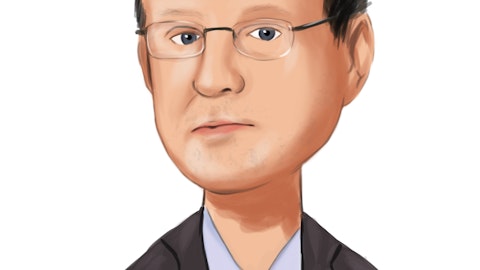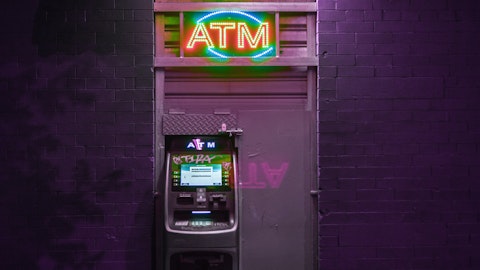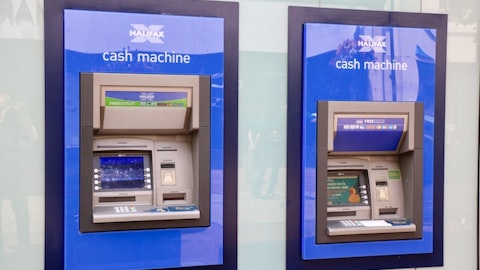Lynn Kerber: Yes. Thank you, again. As we’ve shared at previous calls during the pandemic, we had allocated quite a bit for certain sectors related to the COVID pandemic and those portfolios predominantly hotels and retail. Those performed extremely well, in fact, really stellar. And so we had been releasing those reserves steadily over the last year. So what I think you’ll see is that our reserve is returning to more of core analysis based on historic loss rate and economic forecast. And so I think as we move forward, it’s going to be predominantly a function of that economic forecast. Our credit quality metrics all remain very low, as you can see. And if you look back over our history, over the last business cycle, we performed generally about 75% of our peer group losses.
Mark Secor: Yes. This is Mark. You have to let the model drive the results and there is management judgment in there. But as you see, the portfolio is like indirect is shrinking. We’re putting on assets and categories and mortgage commercial that have much lower historical losses. So that also is contributing to this.
Damon DelMonte: Got it. Okay. Mark; are you able to kind of like ballpark a rough estimate for provisioning going forward? I mean, is it fair to look at the first three quarters of the year and kind of take that average and think that’s doable here in the fourth quarter? Or do you think maybe given change in broader macro trends, we need to have a little bit higher provision?
Mark Secor: Lynn, can add to this, but I think if you look at what we might be seeing in the last several quarters for charge-offs that we need to replace those. I think that probably is a good guidance of what we’re looking at.
Damon DelMonte: Okay. Great. And then just lastly, if I squeeze one more in, what’s a good effective tax rate we should be using, I guess for the fourth quarter and then as we look to 2024.
Mark Secor: Yes. Thanks for the question. The effective tax rate continues to go down as earnings — pre-tax earnings have come down from the last year. So it’s hard to just say peg a number. But I think where we are right now is pretty good going forward at around that 8%. What’s driving that is we continue to invest in solar tax credits. And there having — and we have obviously other tax free income from munis and such, so — but the solar credits are what’s contributing a lot and those we’re going to continue to invest in, those have a 20-year carry-forward. So we want to continue to invest in those and use that to help keep the marginal rate down. So I think where we are right now is good guidance.
Damon DelMonte: Got it. Okay. That’s all that I had. Thanks a lot for the color. Everyone, appreciate it.
Thomas Prame: Thank you.
Operator: And our next question comes from David Long from Raymond James. David, please go ahead.
Thomas Prame: Good morning, David.
David Long: Good morning. Thanks for taking my question. Just a couple of things here, the first one on Slide 17, and you discussed this in the formal comments, but the $25 million of scheduled securities cash flows this fourth quarter and then $120 million next year, are there any prepayment assumptions built into that or are those simply just those that are contractually maturing?
Mark Secor: It’s contractually maturing and runoff payment.
David Long: Got it. Got it. So if there are prepayments, those numbers could be a little bit higher.
Mark Secor: They could. And we see that once in a while, we’ll see some bond get recalled. Yes.




